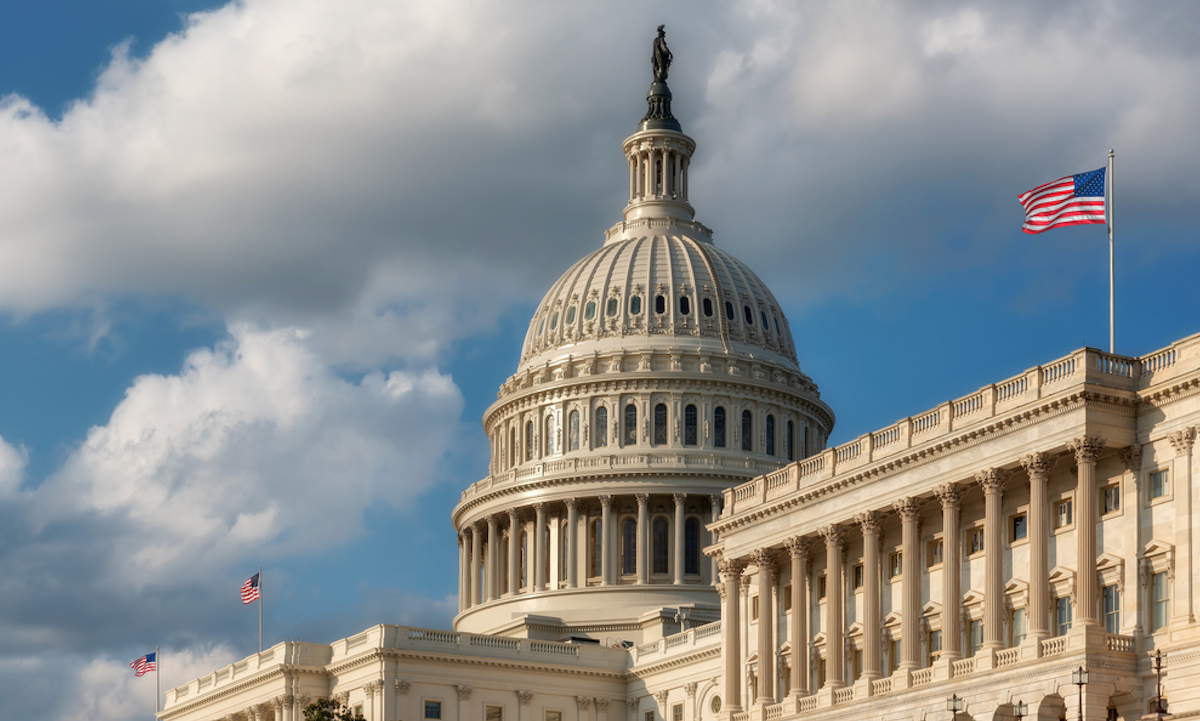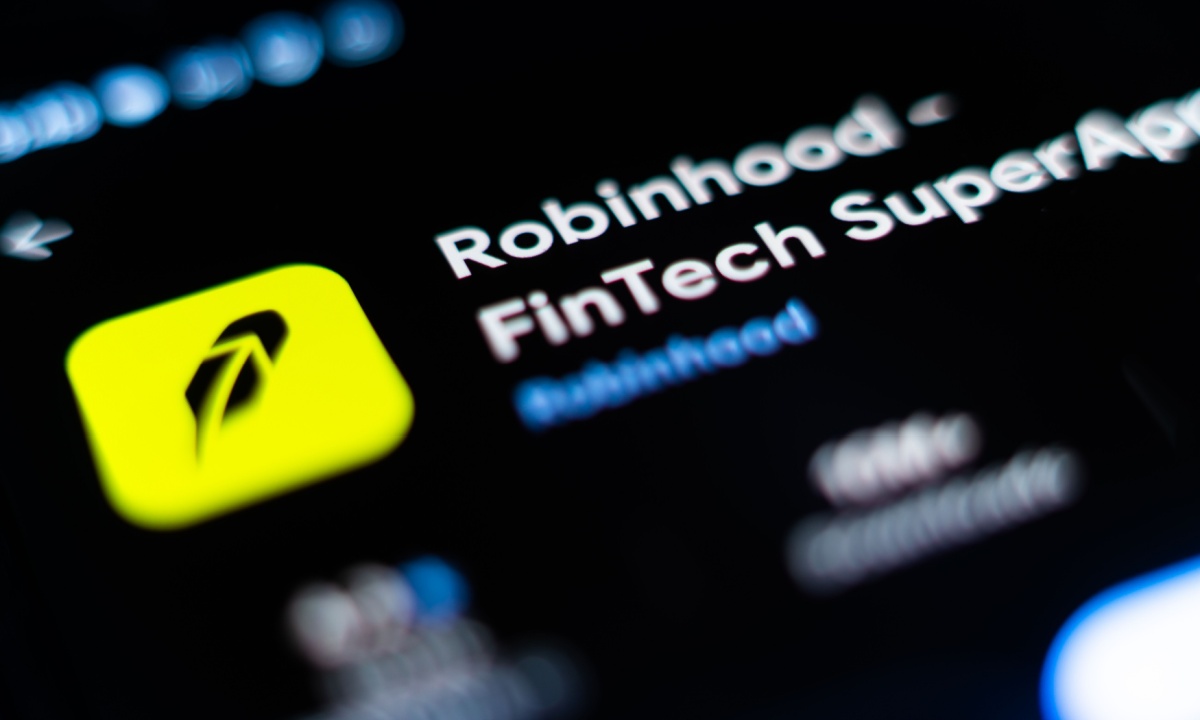Fintech
Senators Release Discussion Draft That ‘Builds on’ House’s CLARITY Act | PYMNTS.com
Published
2 weeks agoon
By
Hrishi
Four senators outlined their proposed steps for creating digital asset market structure legislation and invited stakeholders to comment on the draft and answer a range of questions about the topic.
The initial discussion draft and the request for information were released Tuesday (July 22) by Sen. Tim Scott of South Carolina, Sen. Cynthia Lummis of Wyoming, Sen. Bill Hagerty of Tennessee and Sen. Bernie Moreno of Ohio, according to a Tuesday press release from the Senate Banking Committee.
The senators’ discussion draft “builds on” the CLARITY Act that was passed by the House last week, according to the release.
“My colleagues and I in the House and Senate share the same goal: to provide clear rules of the road for digital assets that protect investors, foster innovation, and keep the future of digital finance anchored in America,” Scott, who is chairman of the Senate Banking Committee, said in the release.
The committee highlighted several aspects of the discussion draft in the release, noting that it defines “ancillary assets” to clarify which digital assets are not securities, and creates disclosure requirements for offers, sales or distributions of these assets.
The discussion draft also requires the Securities and Exchange Commission to promulgate new rules that exempt certain offers or sales of ancillary assets from SEC registration, define what constitutes an investment contract, and tailor existing securities regulations to consider the unique characteristics of digital assets, according to the release.
It also includes provisions to prevent illicit finance and to promote responsible banking innovation using digital assets or distributed ledger systems, per the release.
The senators’ request for information released Tuesday includes 35 questions covering these and other issues related to digital assets.
The House passed the CLARITY Act Thursday (July 17) along with two other crypto-related bills that were part of the chamber’s Crypto Week initiative.
The CLARITY Act passed on a 294-134 vote and will now be considered by the Senate.
House Financial Services Committee Chairman French Hill of Arkansas said the CLARITY Act “establishes clear rules of the road by creating a functional regulatory framework for digital assets.”
It was reported Thursday that the fate of the CLARITY Act in the Senate remains uncertain because Democrats who had supported the digital assets-focused bill in committee in the House began to back away under pressure from liberal members and party activists.
You may like
Fintech
EazyPay Deploys Mastercard Receivables Manager for B2B Transactions in Bahrain | PYMNTS.com
Published
7 hours agoon
August 2, 2025By
Hrishi
The company will use this solution to help merchants in Bahrain automate their B2B virtual card receivables, according to a Tuesday (July 29) press release.
“EazyPay supports businesses with digital payment solutions designed to simplify operations and elevate the customer experience,” Nayef Tawfeeq Al Alawi, founder, managing director and CEO at EazyPay, said in the release. “As virtual cards gain traction for supplier payments, Mastercard Receivables Manager empowers us to strengthen the B2B payments ecosystem across key industries and large market segments.”
Mastercard Receivables Manager eliminates manual processes by streamlining the capture of virtual card payments, processing them straight through and delivering remittance data directly to merchants’ accounting systems, according to the release.
For merchants, this adds up to better efficiency, working capital and cash flow, per the release.
“At Mastercard, we are committed to delivering value-added services that help acquirers and their merchants operate more efficiently,” Saud Swar, country manager, Saudi Arabia, Bahrain, Jordan and other Levant at Mastercard, said in the release. “Receivables Manager addresses a critical challenge for suppliers managing high volumes of virtual card payments by automating processing, reducing time and boosting efficiency.”
Mastercard announced Tuesday that it launched “widescale global availability” of Mastercard Receivables Manager, two years after the introduction of the automated solution for virtual cards.
Since the product’s debut in July 2023, Mastercard Receivables Manager has been enhanced with new capabilities such as multi-language and secure card-on-file to support digital commerce around the world.
The PYMNTS Intelligence report “Virtual Mobility: How Mobile Virtual Cards Elevate B2B Payments” found that virtual cards can deliver security, efficiency and return on investment to B2B payments.
In an earlier collaboration between Mastercard and EazyPay, the companies teamed up in January 2023 to enhance EazyPay’s eCommerce offerings with Mastercard Payment Gateway Services (MPGS), which is now known as Mastercard Gateway.
Before that, in June 2021, the two companies worked together to equip small– to medium-sized businesses (SMBs) and micromerchants with online payment technologies and access to financial services.
For all PYMNTS B2B coverage, subscribe to the daily B2B Newsletter.
Fintech
Fed Lets Banks Get Tax Information Numbers From Third Parties | PYMNTS.com
Published
1 day agoon
August 1, 2025By
Hrishi
The Federal Reserve said Thursday (July 31) it joined other federal banking agencies in allowing banks and credit unions to obtain customers’ tax information numbers from a third party, rather than directly from the customer.
This alternative collection method allowed by this order is optional, and banks are not required to use it, the Fed said in a Thursday press release.
“By law, banks and credit unions are required to verify the identity of a potential customer by obtaining certain identifying information before opening an account,” the release said. “Since this requirement’s implementation in 2003, there have been considerable changes in the way that customers interact with banks and receive financial services. Today’s action will grant banks flexibility in how they obtain this information, while ensuring that risk-based procedures continue to underpin verification of a customer’s identity.”
The Fed said in the release that it coordinated its action with the Federal Deposit Insurance Corporation (FDIC), the Office of the Comptroller of the Currency (OCC), the National Credit Union Administration (NCUA) and the Treasury Department’s Financial Crimes Enforcement Network (FinCEN).
The Board of Governors of the Federal Reserve System voted unanimously to approve this action on July 24, according to the Fed’s website.
FinCEN issued its order allowing banks to collect tax identification number information from a third party, rather than from the financial institution’s customer, on June 27. It said it did so in coordination with the OCC, FDIC and NCUA.
It did so after issuing a request for information on its Customer Identification Program (CIP) requirements for banks in March 2024 and saying it was exploring ways to modernize these requirements.
When announcing its order on June 27, FinCEN Director Andrea Gacki said the organization recognized the changes that have occurred since the initial requirement was enacted into law under the USA PATRIOT Act.
“This order reduces burden by providing banks with greater flexibility in determining how to fulfill their existing regulatory obligations without presenting a heightened risk of money laundering, terrorist financing or other illicit finance activity,” Gacki said in a press release.
PYMNTS reported June 30 that the rule changes pave the path for banks to more actively utilize platforms and artificial intelligence to remain in compliance and blunt fraud.
Fintech
Robinhood Rides Crypto Surge, Bitstamp Deal to Nearly $1B Revenue | PYMNTS.com
Published
2 days agoon
July 31, 2025By
Hrishi
Robinhood Markets on Wednesday (July 30) delivered second-quarter 2025 results that reveal a company pivoting sharply from its roots in commission-free retail trading toward a diversified, multilane financial platform.
The company’s Q2 2025 earnings showed a 45% year-over-year revenue surge to $989 million and a doubling of diluted earnings per share to $0.42.
“We delivered strong business results in Q2 driven by relentless product velocity, and we launched tokenization — which I believe is the biggest innovation our industry has seen in the past decade,” said Vlad Tenev, chairman and CEO of Robinhood.
“Q2 was another great quarter as we drove market share gains, closed the acquisition of Bitstamp and remained disciplined on expenses,” added Jason Warnick, CFO of Robinhood. “And Q3 is off to a great start in July, as customers accelerated their net deposits to around $6 billion and leaned in with strong trading across categories.”
The company ended the quarter with $279 billion in platform assets — up 99% year over year — and $13.8 billion in net deposits. Funded accounts reached 26.5 million, a 10% gain, and cash sweep balances rose 56% to $32.7 billion, reflecting deeper wallet share per customer.
Despite the strong earnings, Robinhood’s share price remained relatively flat in after-hours trading, as of reporting.
Read more: Wall Street Moves On-Chain as Tokenization of US Stocks Goes Global
Crypto Expansion Matures
For years, Robinhood’s crypto offering was primarily a retail gateway — an accessible on-ramp for users to dabble in bitcoin, ethereum, and other digital assets. In Q2 2025, however, the company demonstrated its ability to scale its crypto ambitions.
Revenues from crypto-related products climbed 98% year-over-year to $160 million, while total notional crypto trading volumes hit $35 billion.
Much of that surge can be attributed to the June acquisition of Bitstamp, a legacy exchange with deep roots in Europe and over 50 regulatory licenses across major jurisdictions. Notably, $7 billion in Q2 crypto volume came from Bitstamp alone, indicating rapid onboarding of its institutional client base.
With Bitstamp, Robinhood gains more than trading infrastructure — it secures compliance credibility, cross-border licensing, and a level of operational maturity essential for institutional trust. The deal allows Robinhood to fast-track services like crypto staking, which is now available to eligible U.S. users, and stock tokenization, which enables investors in Europe to trade over 200 U.S. equities in tokenized form.
Tenev stressed to investors that the Bitstamp acquisition “instantly globalizes our crypto footprint and bridges us to institutional demand in a way that’s hard to replicate organically.”
At the same time, historically dismissed by financial elites as a gamified millennial platform, Robinhood is making strides to rebrand itself as a serious contender in the institutional arena. The Bitstamp acquisition is only part of that story. The company is also in the process of acquiring WonderFi, a Canadian digital asset platform specializing in decentralized finance (DeFi) tools and tokenized asset services.
Infrastructure and Credibility
Set to close in the second half of 2025, the WonderFi deal is expected to expand Robinhood’s footprint in North America and deepen its capacity to offer programmable finance products.
Internally, Robinhood has begun to lay down institutional-grade infrastructure, including custody solutions, anti-money laundering and know-your-customer processes, and advanced trading engines. With Bitstamp’s regulatory muscle and WonderFi’s technology stack, Robinhood appears poised to rival firms like Coinbase or Galaxy in the lucrative middle ground between traditional finance and crypto-native platforms.
Beyond digital assets, Robinhood’s Q2 also demonstrated growth in core FinTech verticals — specifically those aimed at long-term customer lifetime value rather than one-off trades. Robinhood Gold, the company’s premium subscription offering, reached a record 3.5 million members, up 76% year-over-year. That growth has lifted average revenue per user to $151, a 34% annual increase.
Robinhood Banking, in internal beta, is slated for public rollout later this quarter. The product aims to bring private banking features — such as high-yield savings, estate planning, and net worth tracking — to the mass market.
Still, regulatory headwinds also loom large. Crypto staking and tokenization, two of Robinhood’s most promising innovations, face uncertain regulatory treatment in both the U.S. and Europe. SEC scrutiny of digital asset products, along with evolving interpretations of tokenized securities, could force strategic recalibrations.
“Tokenization will do for stocks what stablecoins did for fiat,” Tenev said.
Trending

 Fintech2 weeks ago
Fintech2 weeks agoOpenAI and UK Government Partner on AI Infrastructure and Deployment

 Latest Tech News2 weeks ago
Latest Tech News2 weeks agoThe tech that the US Post Office gave us

 Cyber Security2 weeks ago
Cyber Security2 weeks agoMicrosoft Fix Targets Attacks on SharePoint Zero-Day – Krebs on Security

 Latest Tech News1 week ago
Latest Tech News1 week agoTrump wanted to break up Nvidia — but then its CEO won him over

 Artificial Intelligence2 weeks ago
Artificial Intelligence2 weeks agoApple loses key AI leader to Meta

 Latest Tech News1 week ago
Latest Tech News1 week agoGPD’s monster Strix Halo handheld requires a battery ‘backpack’ or a 180W charger

 Cyber Security1 week ago
Cyber Security1 week agoPhishers Target Aviation Execs to Scam Customers – Krebs on Security

 Artificial Intelligence1 week ago
Artificial Intelligence1 week agoGoogle’s newest Gemini 2.5 model aims for ‘intelligence per dollar’

















